Toronto 911 operator says ‘people are being hurt’ by waiting on hold for up to 10 minutes

A baby not breathing, a drowning and a person suffering from a gunshot wound.
Those are all examples of emergencies where callers waited on hold for longer than two minutes before a Toronto 911 operator said they were able to answer the call.
“Everything that we do at our job as call-takers is about seconds,” the operator said. “People are being hurt, and they don’t know they’re not getting the help that they need.”
CBC News is not identifying the 911 operator because they’re not authorized to talk about their work at the Toronto Police Service’s 911 communication centre, which answers all emergency calls for the city.
Callers being put on hold when trying to report an emergency was a problem even before COVID-19. Two years before the pandemic, Toronto police were working to address wait times by hiring and training more operators to meet increased demand for 911.
Now internal documents obtained by CBC News show how long wait times are more than one-offs in Canada’s largest city. Reports, emails and snapshots of Toronto’s 911 call queue paint a picture of an emergency service struggling to retain staff amid burnout-fuelled shortages.
The staffing issues mean there are sometimes fewer than 10 operators answering 911 calls for a city of nearly three million people, leading to average longest wait times ranging from two to 10 minutes.
“We’re not fulfilling our duty to the public,” said the 911 operator. “We all took this job to help people, we all took this job to answer your call, to be there — and we can’t do it.”
Peaks in call volume create wait time: manager
The manager of Toronto’s 911 communication centre told CBC News the service is safe and fulfilling its duty to the public despite any staffing challenges.
“There’s always going to be those peaks in call volume that create wait time — it’s inevitable,” said Kerry Murray-Bates. “Financially or logistically, it’s just not possible to staff [for] a van attack every day. It doesn’t make sense.”
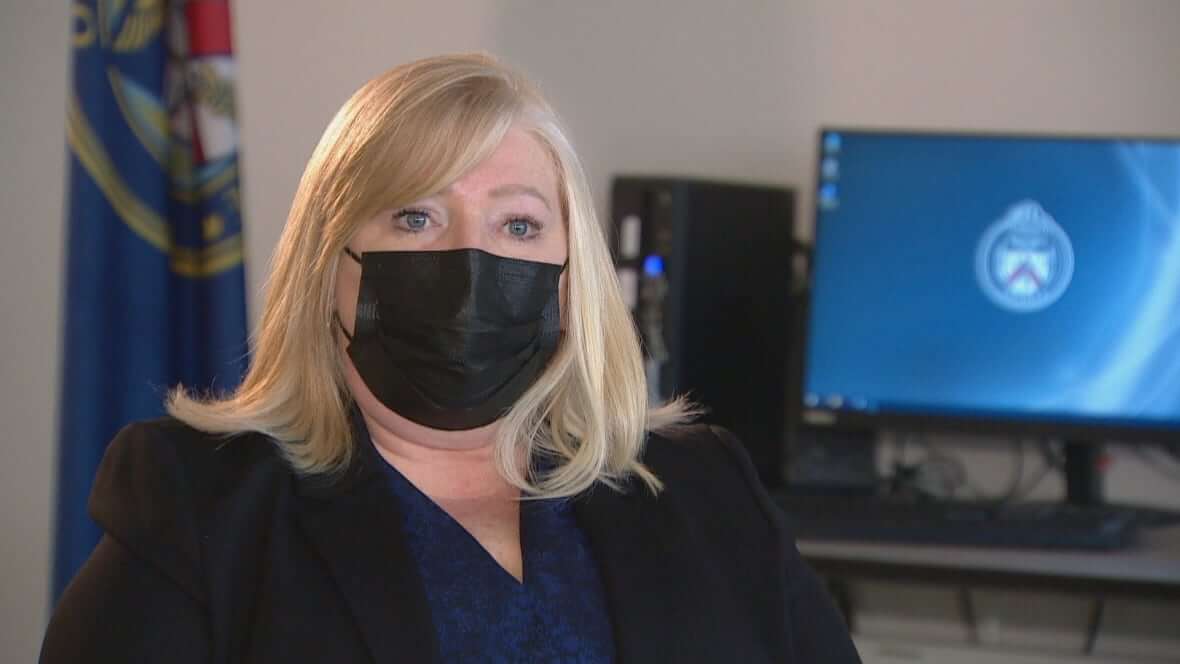
The communication centre received just under 900 emergency calls in the roughly two hours around the April 2018 Toronto van attack, which killed 10 people and injured 16 others. By comparison, in the same time period a day earlier, the call centre received 400 calls, said Murray-Bates.
The team uses historical data to best “match our workforce to our workflow,” she said, and continues to train and recruit new staff to fill vacancies.
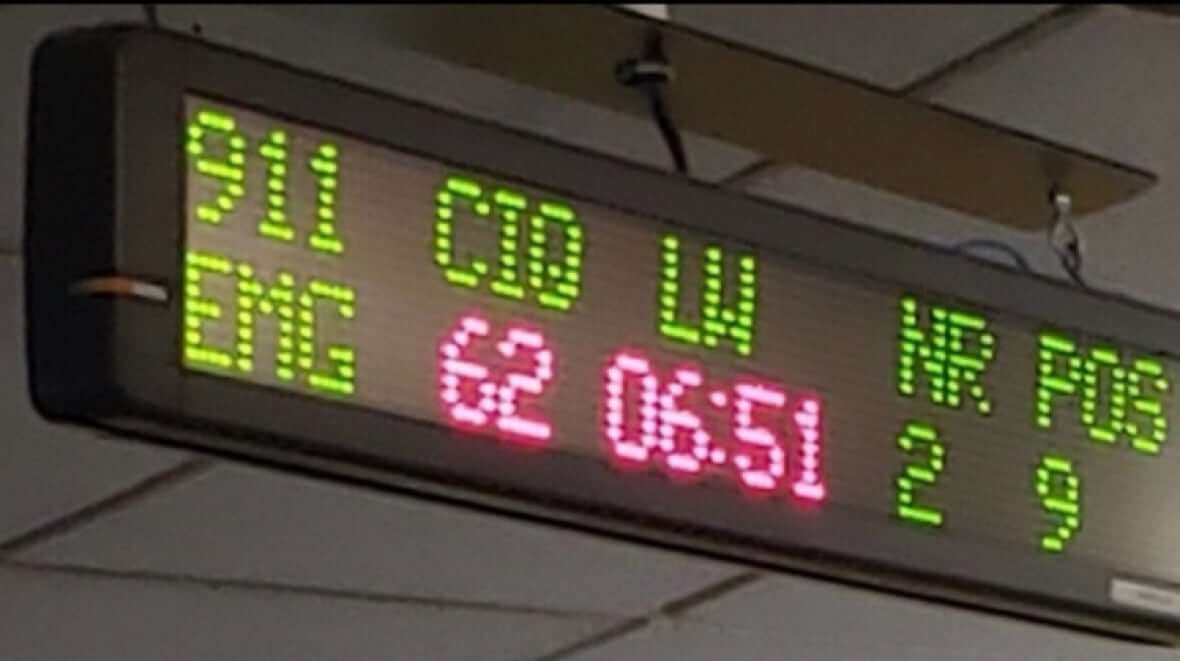
Since June 2021, the 911 operator captured nearly 250 snapshots of 911 wait times from 45 different days on the job. The longest wait time among the queue board photos shared with CBC News was six minutes and 51 seconds, with 62 people waiting on hold and nine operators taking calls.
The operator captured 140 queue board images where the longest wait time was over two minutes in length, 43 where it was over three minutes and 13 where it was over four minutes long — all over different days of the week and times of the day.
Internal service reports also show monthly average longest wait times ranged from nearly four minutes to nearly five minutes for June through November of last year. The longest wait time recorded in those months was on Sunday, Oct. 3, at 7 p.m., when someone waited for 10 minutes and two seconds for one of nine operators to pick up the call.
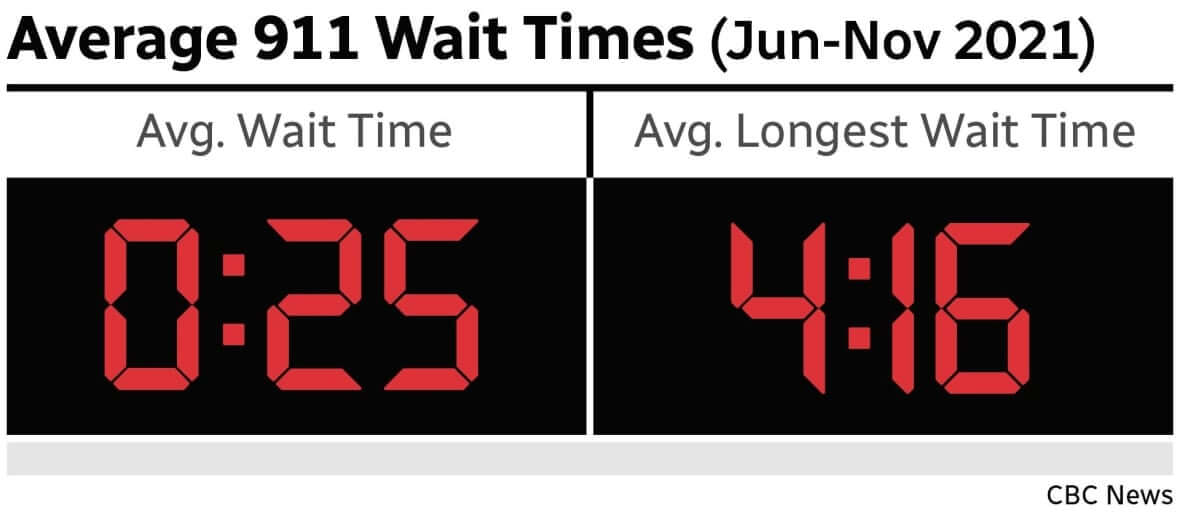
From June through November, those same reports show the average wait time each month never exceeded 33 seconds, for a combined average wait of 25 seconds.
From June 1 until Dec. 1, the Toronto service’s emergency-call answering times fell below the National Emergency Number Association (NENA) standard of answering 90 per cent of all 911 calls within 15 seconds every day except one.
While the NENA standard is voluntary, like most 911 communication centres, Toronto’s service strives to meet it, said Murray-Bates.
“What doesn’t come with the NENA standard is any sort of parameters on how you will meet the NENA standard,” she said. “Our average wait times last year were between eight seconds and 33 seconds. So, on average, we’re doing pretty good.”
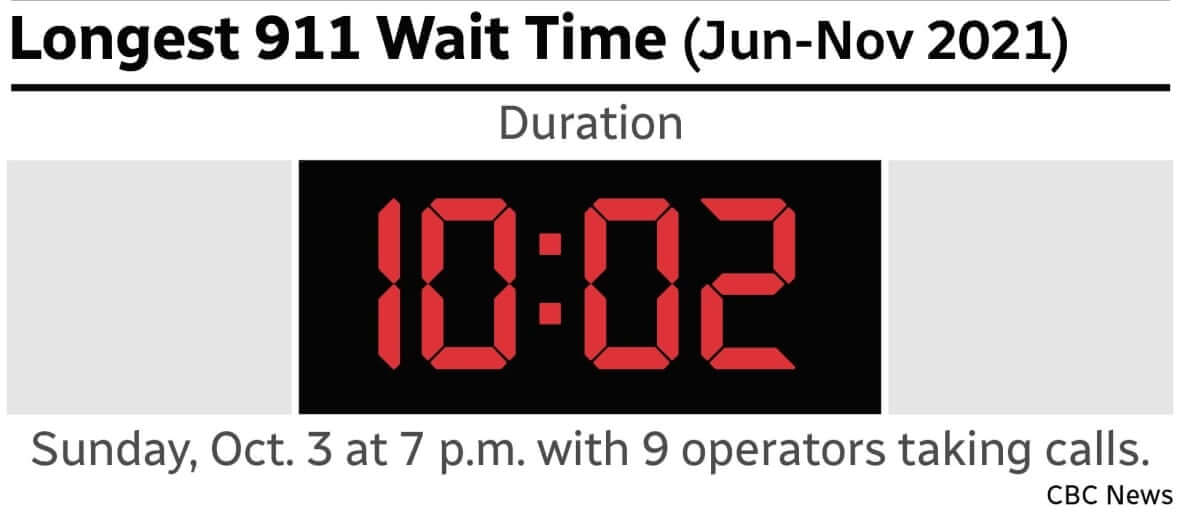
When it comes to longest wait times — like that 10-minute wait in October — Murray-Bates said the metric reflects “a moment in time” and changes quickly.
“One impactful accident on the Gardiner Expressway can generate 50 calls,” she said. “That creates a spike in our call volume, which then creates some impact to our wait times.”
‘We need to thrive, not just survive’
But emails to staff from Murray-Bates about improving service and staffing reveal some concerns.
In an October 2021 email, she acknowledges “that staffing continues to be a struggle,” but says she is optimistic the situation will improve soon when new recruits finish their training.
“My goal is that we get to a place where every phone position is filled and we are reaching our service levels, that members are not frazzled, anxious and angry,” Murray-Bates wrote. “We need to thrive, not just survive.”
The email also says the Toronto police chief’s office, the police board chair, and the police union have all given “incredible attention” to the staffing issues and Murray-Bates is confident concerns will be addressed.
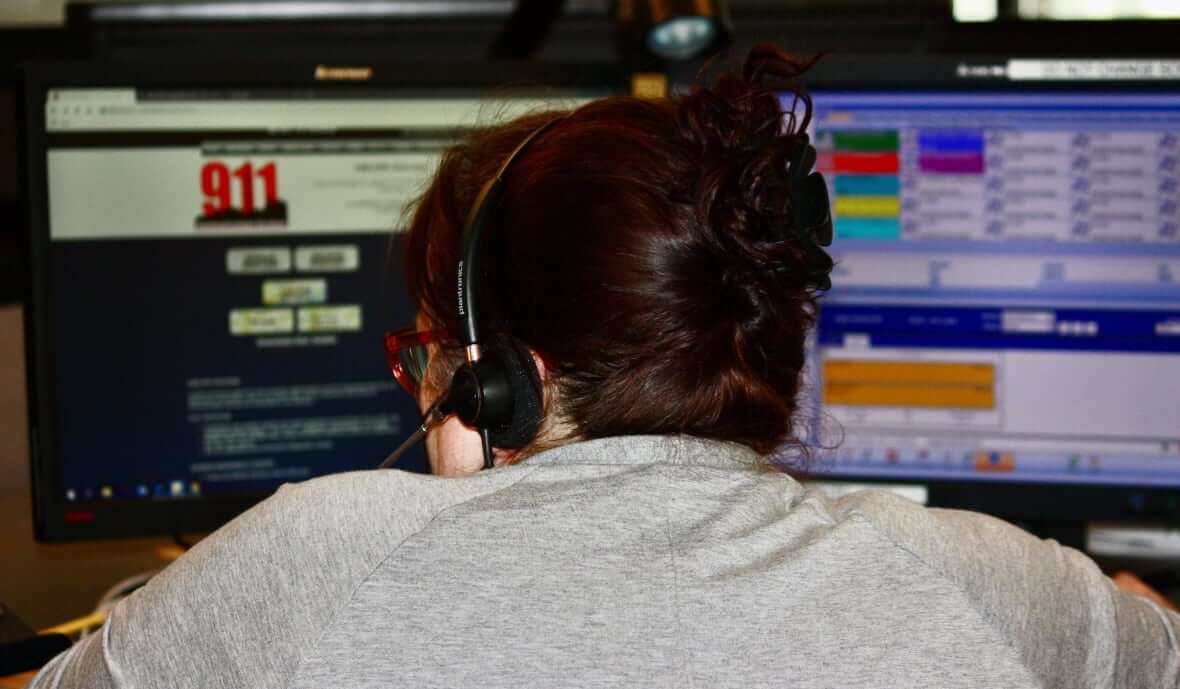
In an interview, Murray-Bates confirmed her team had received support from those three offices, but didn’t specify what kind of support. Instead, she said they have to maximize staffing within the rules and budget approved for the communication centre.
Within a month of that first email, the tone of Murray-Bates’ subsequent emails shifted.
“Despite our best efforts, we keep losing members to long-term absence, which is having a serious impact on not only members who remain, but to the citizens we serve,” she wrote in November.
“Our numbers are not good.”
The email then details management’s efforts to counteract the shortages, such as by combining some police dispatch positions to free up staff to answer 911 calls instead.
Murray-Bates also said in the email that they anticipated losing more staff to the city’s mandated vaccine policy on Dec. 1, and they “already lost a few members from the most recent call-taking class.”
“To be brutally honest with you, we don’t know what more we can do to help this issue,” she wrote. “We know members are tired, stressed and burnt out. Our job is so unique that no one else can do what we do.”
‘We’re doing the right things’
Responding to that email, Murray-Bates told CBC News “you have to put it into the context of we’re doing the right things here.”
“We are focusing on our testing and recruitment and our hiring process,” she said. “We’re trying to make it more robust so that we get the best candidate in the door, which is going to lend to our success rate in retaining those people, which is going to lend to our staffing.”
Right now, there are 35 recruits in training and the communication centre has a job posting up to fill 24 more vacancies, said Murray-Bates. She said she hopes candidates for those spots will begin training in May.
The maximum number of 911 operators budgeted for is 301.
Roughly 60 per cent of recruits successfully make it through training and the majority of staff they lose are newly trained, said Murray-Bates.
“We provide the best training we can, we provide the best support we can to our communication officers,” she said.
“We realize they’re tired, but that comes with being a 911 operator, right? Staffing is not the only stressor in a 911 centre — it’s inherent in the job.”
Temporary staffing solution ‘overwhelming’
But the 911 operator told CBC News that management’s temporary solution to reduce wait times caused by staffing issues — giving them more work when they’re assigned to dispatching — has just added to that stress.
All 911 operators are trained as both call-takers, who answer and process emergency and non-emergency calls, and as dispatchers, who co-ordinate police response to those calls.
Operators can be assigned to only take calls, only dispatch, or to spend half of their shift doing each.
To alleviate emergency call wait times when staff is low or call volumes are up, the service is now combining some police dispatch jobs. This means that where two divisions would normally each have their own dispatcher, they’re now sharing a single dispatcher and the other is assigned to take emergency calls instead.
“It’s absolutely overwhelming us,” the operator said. “You’re managing every emergency that the police would be involved in for that entire area, for six to 12 hours.”
Having one dispatcher handle two divisions is not new, said Murray-Bates, and some divisions were already combined to a single dispatcher. But if the radio traffic becomes unmanageable, a dispatcher can notify a supervisor and they’ll split up the divisions again, she said.
“It’s worked very well, actually, for us to allow more people to be on the phones.”
No provincial oversight for 911 services in Ontario
In Ontario, municipalities are responsible for 911 emergency services and there is no provincial oversight or legislation that sets standards for call-answering.
NENA’s Canadian director, Holly Barkwell, says her organization is pushing for 911 standards in provinces and territories that don’t have them — and has also been advocating for national 911 standards for decades.
“Tying funding to standards and service levels absolutely works,” she said. “We don’t have any way to compare service levels across the country.”
Alberta and Quebec both have legislation that mandates 911 standards. In Alberta, the minimum standard states that all 911 calls should be answered within 15 seconds, 95 per cent of the time. Quebec’s standard outlines that all emergency calls be responded to within 10 seconds at least 90 per cent of the time, on a monthly basis.
Both provinces’ minimum standards are higher than the NENA standard, which Toronto’s 911 communication centre is trying — but mostly failing — to meet.
“We’ve gotten lucky,” said the 911 operator. “Someone has to answer that phone call, and yes, it should be within just a few seconds — because those seconds mean everything.”
Toronto’s auditor general is currently working on an audit of the 911 communication centre’s operations to assess whether it provides access to emergency services in a timely manner. The audit is expected to be completed this year.





Redes Sociais - Comentários